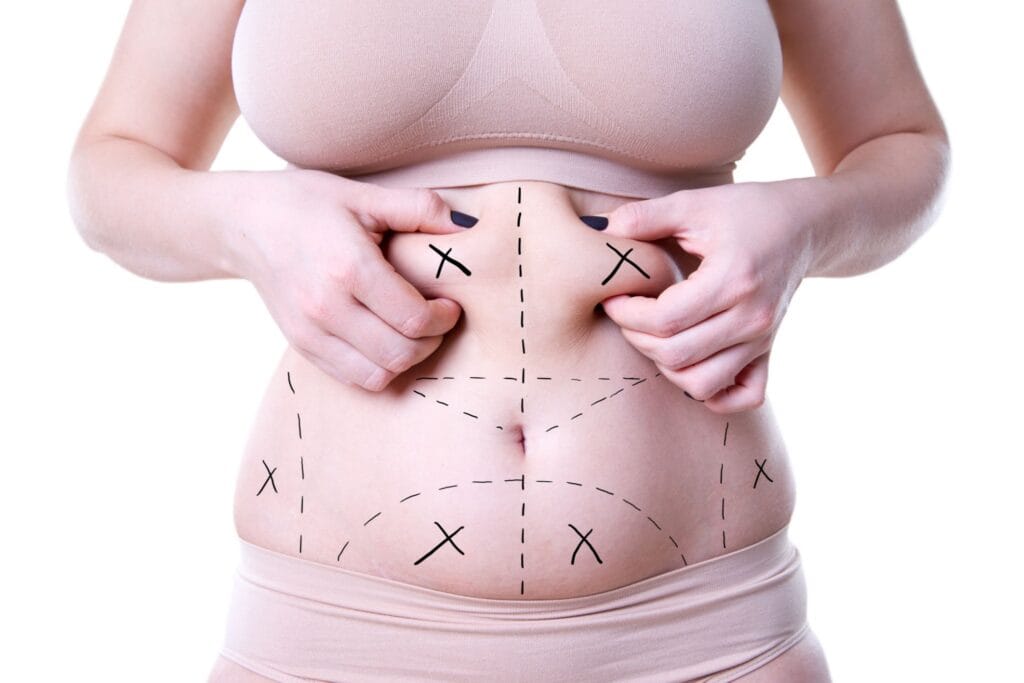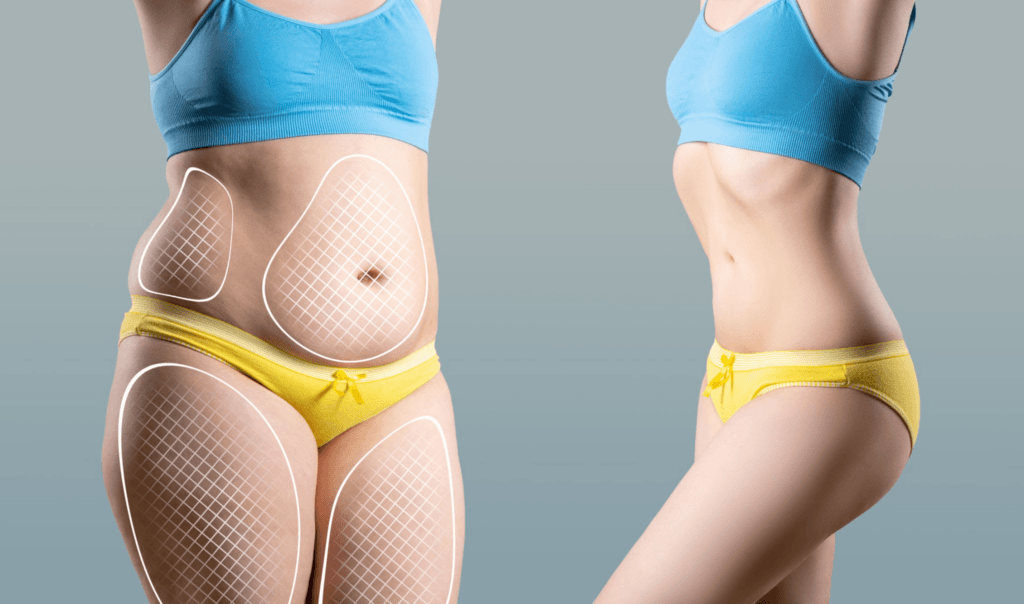Excited about the transformative results a lipectomy can bring, but unsure how to prepare for the procedure? You’re not alone. Proper pre-operative preparations are crucial for ensuring a smooth surgery and optimal recovery. Whether you’re planning an abdominoplasty, brachioplasty, or thigh lift, understanding the necessary steps before your lipectomy can make all the difference in your experience and results.
In this comprehensive guide, we’ll walk you through every step of preparing for a lipectomy, including:
- Essential medical evaluations and tests you need before surgery.
- Lifestyle adjustments, including diet, exercise, and habits to optimize your results.
- How to choose the right surgeon and facility for your procedure.
- Practical tips for preparing your home and support system for post-operative recovery.
Let’s dive in and ensure you’re fully prepared for a successful lipectomy journey!

Inhaltsverzeichnis
1. Medical Evaluations and Tests
1.1. Initial Consultation with Your Surgeon
Your pre-operative journey begins with an initial consultation with your surgeon. During this appointment, your surgeon will:
- Discuss your medical history and any pre-existing conditions.
- Evaluate your current health status and eligibility for surgery.
- Explain the procedure details, including risks, benefits, and expected outcomes.
- Provide personalized recommendations based on your unique needs and goals.
1.2. Required Pre-Operative Tests
Before your lipectomy, your surgeon will likely require several pre-operative tests to ensure you’re fit for surgery. These may include:
| Test | Purpose |
|---|---|
| Complete Blood Count (CBC) | Evaluates overall health and detects potential issues like anemia or infections |
| Coagulation Profile | Assesses blood clotting ability to minimize bleeding risks |
| Electrolyte Panel | Checks electrolyte balance, crucial for surgical safety |
| EKG (Electrocardiogram) | Evaluates heart health and detects any cardiac issues |
| Chest X-Ray | Assesses lung and heart condition |
1.3. Medication Review and Adjustments
Your surgeon will review all medications and supplements you’re currently taking. Some may need to be adjusted or temporarily discontinued before surgery:
- Blood Thinners: Medications like aspirin, warfarin, or anti-inflammatory drugs may need to be stopped to reduce bleeding risks.
- Herbal Supplements: Some supplements, such as ginkgo biloba or garlic, can increase bleeding risks and should be avoided.
- Hormonal Medications: Birth control pills or hormone replacement therapy may need adjustment.
1.4. Pre-Operative Instructions from Your Surgeon
Your surgeon will provide specific instructions to follow in the days leading up to your lipectomy. These may include:
- Fasting guidelines (typically no food or drink after midnight the night before surgery).
- Showering with a special antibacterial soap the night before or morning of surgery.
- Avoiding alcohol and smoking for a specified period before surgery.
- Arranging for transportation to and from the surgical facility.
Pro Tip: Keep a detailed list of all medications, supplements, and dosages to share with your surgeon during your consultation. This ensures nothing is overlooked during your pre-operative evaluation.

2. Lifestyle Adjustments for Optimal Results
2.1. Diet and Nutrition
Proper nutrition is essential for preparing your body for surgery and promoting optimal healing. Focus on:
- Protein-Rich Foods: Lean meats, fish, eggs, and plant-based proteins support tissue repair and recovery.
- Vitamins and Minerals: Vitamins A, C, and E, as well as zinc, aid in wound healing and immune function.
- Flüssigkeitszufuhr: Drink plenty of water to keep your body hydrated and support overall health.
- Avoiding Processed Foods: Minimize intake of sugary, fatty, or processed foods that can impede healing.
2.2. Exercise and Physical Activity
While you should avoid strenuous exercise close to your surgery date, maintaining light physical activity can improve circulation and overall health:
- Light Cardio: Walking or gentle cycling can enhance cardiovascular health without straining your body.
- Strength Training: Focus on maintaining muscle tone, but avoid heavy lifting or intense workouts.
- Flexibility Exercises: Yoga or stretching can improve mobility and reduce stress.
2.3. Smoking and Alcohol Cessation
Both smoking and alcohol can negatively impact your surgery and recovery:
- Rauchen: Increases the risk of complications, impairs healing, and should be stopped at least 4-6 weeks before surgery.
- Alcohol: Can dehydrate your body and interact negatively with anesthesia. Avoid alcohol for at least a week before surgery.
2.4. Mental and Emotional Preparation
Preparing mentally and emotionally for your lipectomy is just as important as physical preparation:
- Set Realistic Expectations: Understand the limitations and potential outcomes of your procedure.
- Visualize Your Goals: Keep your reasons for undergoing the lipectomy in mind to stay motivated.
- Prepare for Recovery: Mentally prepare for the downtime and temporary limitations during recovery.
Pro Tip: Consider keeping a journal to document your thoughts and feelings before and after surgery. This can help you process the emotional aspects of your transformation journey.

3. Choosing the Right Surgeon and Facility
3.1. Selecting a Board-Certified Plastic Surgeon
Choosing a qualified and experienced surgeon is one of the most critical steps in your lipectomy journey. Look for:
- Board Certification: Ensure your surgeon is certified by a recognized board, such as the American Board of Plastic Surgery.
- Experience: Look for a surgeon with extensive experience in performing lipectomies.
- Patient Reviews: Read reviews and testimonials from previous patients to gauge satisfaction and outcomes.
- Vorher-Nachher-Fotos: Review photos of previous patients to assess the surgeon’s skill and aesthetic results.
3.2. Evaluating the Surgical Facility
The facility where your lipectomy will be performed plays a significant role in your safety and comfort. Consider the following:
- Accreditation: Ensure the facility is accredited by a recognized organization, such as the Joint Commission or AAAASF.
- Safety Protocols: Verify that the facility follows strict safety and hygiene protocols.
- Staff Qualifications: Ensure the medical staff is experienced and well-trained in supporting lipectomy procedures.
- Comfort and Amenities: Consider the comfort and amenities offered, as these can enhance your overall experience.
3.3. Understanding Anesthesia Options
Your surgeon will discuss anesthesia options with you during your consultation. Common options for lipectomy include:
| Anesthesia Type | Beschreibung | Considerations |
|---|---|---|
| Vollnarkose | Induces a state of unconsciousness for the duration of the surgery | Requires an anesthesiologist; suitable for extensive procedures |
| Intravenous (IV) Sedation | Induces a relaxed, semi-conscious state | Often combined with local anesthesia; suitable for less extensive procedures |
| Lokalanästhesie | Numbs only the specific area being treated | Used for minor procedures or in combination with sedation |
3.4. Preparing for Your Pre-Operative Appointment
Before your surgery, you’ll have a pre-operative appointment to finalize details and ensure you’re fully prepared. During this appointment:
- Review and sign any necessary consent forms.
- Receive final instructions for the day of surgery.
- Address any last-minute questions or concerns with your surgeon.
- Confirm post-operative care plans and follow-up appointments.
Pro Tip: Bring a list of any last-minute questions or concerns to your pre-operative appointment to ensure you feel fully prepared and confident going into surgery.
4. Practical Preparations for Surgery and Recovery
4.1. Preparing Your Home for Recovery
Creating a comfortable and safe recovery environment at home is essential for a smooth post-operative experience:
- Recovery Area: Set up a comfortable space with pillows, blankets, and easy access to essentials.
- Supplies: Stock up on necessary supplies, such as gauze, bandages, prescribed medications, and loose, comfortable clothing.
- Accessibility: Arrange for easy access to the bathroom, kitchen, and other frequently used areas.
- Safety: Remove tripping hazards and ensure your home is safe for limited mobility.
4.2. Arranging for Post-Operative Support
Having a support system in place is crucial for your recovery. Consider the following:
- Caregiver: Arrange for a friend or family member to assist you for at least the first 24-48 hours post-surgery.
- Transportation: Ensure you have transportation to and from the surgical facility and any follow-up appointments.
- Meal Preparation: Prepare meals in advance or arrange for meal delivery during your initial recovery period.
- Child or Pet Care: If applicable, arrange for someone to help with childcare or pet care during your recovery.
4.3. Packing for Your Surgery Day
Pack a bag with essential items to bring with you on the day of your surgery:
- Comfortable, loose-fitting clothing to wear home after surgery.
- Any prescribed medications or supplements.
- Personal hygiene items, such as a toothbrush and lip balm.
- Entertainment, such as a book, magazine, or music player, for your waiting time.
- Important documents, including your ID, insurance information, and any required forms.
4.4. Final Checklist Before Surgery
Use this checklist to ensure you’re fully prepared for your lipectomy:
| Task | Completed |
|---|---|
| Consultation with surgeon | |
| Pre-operative tests and evaluations | |
| Medication adjustments as instructed | |
| Arranged for post-operative support | |
| Prepared home for recovery | |
| Packed bag for surgery day | |
| Followed all pre-operative instructions |
Pro Tip: Go through your final checklist a few days before your surgery to ensure you haven’t missed anything. This will give you time to address any last-minute preparations.
Conclusion: Your Path to a Successful Lipectomy
Key Takeaways
- Proper pre-operative preparations are essential for a successful lipectomy and smooth recovery.
- Medical evaluations, lifestyle adjustments, and choosing the right surgeon and facility are critical steps in your journey.
- Preparing your home and support system ensures a comfortable and safe recovery environment.
- Following your surgeon’s instructions and being mentally prepared can significantly enhance your overall experience and results.
Next Steps
Ready to take the next step in your lipectomy journey? Here’s what to do:
- Schedule a consultation with a board-certified plastic surgeon to discuss your goals and receive personalized recommendations.
- Complete all required medical evaluations and tests to ensure you’re fit for surgery.
- Follow your surgeon’s pre-operative instructions to prepare your body and mind for the procedure.
- Prepare your home and support system for a comfortable and successful recovery.
Bei Chirurgieteam, we are committed to supporting you throughout your lipectomy journey. Our team of experienced professionals is here to provide personalized care and guidance every step of the way. Contact us today to schedule a consultation and take the first step toward achieving your body goals!
Häufig gestellte Fragen (FAQs)
1. What medical tests are required before a lipectomy?
Common pre-operative tests include a Complete Blood Count (CBC), coagulation profile, electrolyte panel, EKG, and chest X-ray. Your surgeon will determine which tests are necessary based on your medical history and the extent of your procedure.
2. How should I prepare my home for recovery after a lipectomy?
Set up a comfortable recovery area with pillows, blankets, and easy access to essentials. Stock up on necessary supplies, remove tripping hazards, and arrange for a caregiver to assist you during the initial recovery period.
3. Can I take my regular medications before a lipectomy?
Your surgeon will review all medications and supplements you’re taking and provide specific instructions. Some medications, particularly blood thinners, may need to be adjusted or temporarily discontinued before surgery.
4. What should I eat before a lipectomy?
Focus on a balanced diet rich in protein, vitamins, and minerals in the weeks leading up to your surgery. Avoid processed foods and stay hydrated. Your surgeon will provide specific fasting guidelines for the day before your procedure.
5. How do I choose the right surgeon for my lipectomy?
Look for a board-certified plastic surgeon with extensive experience in lipectomy procedures. Read patient reviews, assess before-and-after photos, and schedule a consultation to discuss your goals and evaluate their approach.
6. What should I pack for my lipectomy surgery day?
Pack comfortable, loose-fitting clothing, prescribed medications, personal hygiene items, entertainment, and important documents. Your surgeon will provide a detailed list of what to bring.
7. How long before a lipectomy should I stop smoking?
It’s recommended to stop smoking at least 4-6 weeks before your lipectomy. Smoking can increase the risk of complications and impair healing, so quitting as early as possible is beneficial.
8. What lifestyle adjustments should I make before a lipectomy?
Focus on maintaining a healthy diet, staying hydrated, engaging in light physical activity, and avoiding smoking and alcohol. Mentally prepare for the procedure and recovery by setting realistic expectations and visualizing your goals.
Our Surgeons and Affiliated Professionals
At Surgyteam, we are proud to collaborate with a distinguished team of medical professionals, each bringing a wealth of expertise and a commitment to patient-centered care.
- Dr. Mehmet Fatih Okyay (Dr. MFO): Plastic, Reconstructive and Aesthetic Surgery Specialist. Co-founder of Surgyteam. FEBOPRAS certified. (https://www.dr-mfo.com/)
- Dr. Selçuk Yılmaz: Plastic, Reconstructive and Aesthetic Surgery Specialist. (https://drselcukyilmaz.com)
- Dr. Ebru Okyay: Dermatology Specialist. (https://drebruokyay.com/)
- Dr. Mustafa Keleş: Aesthetic, Plastic and Reconstructive Surgery Specialist. (https://www.medstar.com.tr/doktorlar/mustafa-keles/)
- Dr. Boray Yücel: Plastic, Reconstructive and Aesthetic Surgery Specialist. (https://borayucel.com/)
- Dr. Sibel Atalay: Plastic, Reconstructive and Aesthetic Surgery Specialist. Clinic with International Health Tourism Authorization Certificate. (https://www.sibelatalay.com.tr/)
- Dr. Mert Meral: Plastic, Reconstructive and Aesthetic Surgery Specialist. EBOPRAS certified. (https://mertmeral.com/)
To learn more about Surgyteam and how we can assist you, please visit our website:
https://surgyteam.com/
Disclaimer: This blog post is intended for informational purposes only and does not constitute medical advice. Costs are estimates and can vary. Always consult with a qualified medical professional for personalized advice and treatment.



